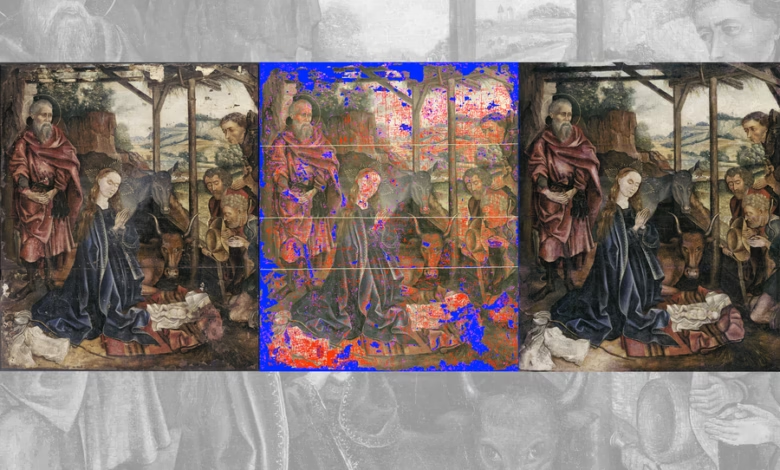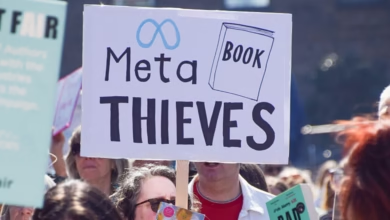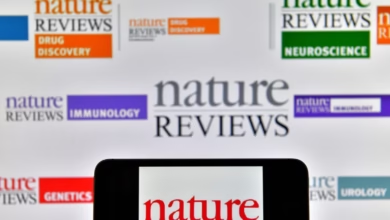MIT Student Uses AI-Printed Masks to Restore Paintings Fast

▼ Summary
– MIT graduate Alex Kachkine developed an AI-based technique using polymer films to restore damaged paintings in hours instead of months, as reported in Nature.
– The method involves printing transparent, color-matched “masks” that can be applied to paintings and removed later, making the restoration reversible.
– Kachkine’s approach preserves a digital record of the restoration, providing future conservators with clear documentation of the process.
– Up to 70% of institutional art collections remain hidden due to damage, as traditional restoration is slow and labor-intensive, creating a massive backlog.
– In a test case, Kachkine’s AI model restored a 15th-century painting with 5,612 damaged areas in 3.5 hours—66 times faster than manual methods—while avoiding generative AI to prevent distortion.
Restoring damaged paintings may soon become dramatically faster thanks to an MIT student’s breakthrough technique using AI-printed masks. The innovative approach could help museums preserve cultural heritage while making more artwork accessible to the public.
Alex Kachkine, a mechanical engineering graduate student at MIT, developed a method that creates transparent polymer films with thousands of precisely matched colors to repair damaged paintings. Unlike conventional restoration, which permanently alters the artwork, these AI-generated masks can be removed without affecting the original piece. This reversible process preserves the painting’s integrity while providing a clear digital record for future conservators.
The inspiration struck Kachkine during a cross-country road trip in 2021, where he noticed how many artworks remained hidden due to extensive damage and lengthy restoration backlogs. As an amateur conservator himself, he recognized the need for a faster, more efficient solution. His research, recently published in Nature, demonstrates that AI-assisted restoration can complete repairs in hours rather than the months or even years required by traditional hand-painting methods.
To test his technique, Kachkine selected a severely damaged 15th-century oil painting requiring repairs across 5,612 individual areas. An AI model analyzed the artwork, identifying damage patterns and generating 57,314 custom-matched colors. The entire restoration took just 3.5 hours, 66 times faster than manual methods, without compromising accuracy.
Crucially, Kachkine avoided generative AI tools like Stable Diffusion or GANs, which can distort spatial details and misalign with the original artwork. Instead, his method ensures pixel-perfect precision, maintaining the painting’s authenticity.
With an estimated 70% of institutional art collections currently in storage due to damage, this technology could revolutionize conservation efforts. Museums worldwide face a shortage of skilled conservators, leaving countless masterpieces unseen. Kachkine’s approach not only accelerates repairs but also provides a transparent, reversible solution that future experts can easily reference.
The implications extend beyond efficiency. By making restoration more accessible, this innovation could help preserve cultural heritage for generations while allowing more artwork to be displayed publicly. As Kachkine noted, this marks the first time conservators can document restoration work with such clarity, ensuring historical accuracy for future preservation efforts.
While still in development, the technique has already shown remarkable potential. If adopted widely, it could transform how museums and conservators approach art restoration, balancing speed, precision, and respect for historical integrity.
(Source: Ars Technica)





